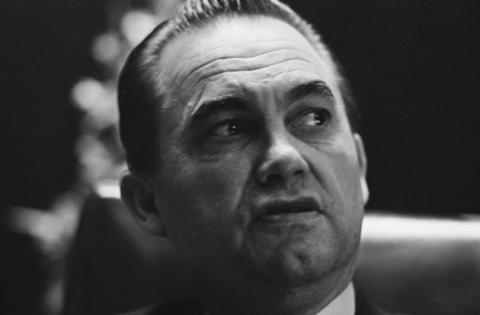Martin Schram: A 1968 preview of our 2024 challenge
Published in Op Eds
So here we are, staring at our news screens and feeling like we are staring into someone else’s mirror. We don't even recognize the face that’s staring back at us.
It’s the new post-election face of America’s democracy. Kind of angry. Kind of unstable, as if fighting an enemy within.
Is that the way the world sees us? (Yes, now it is.)
We have just revealed this new face of ourselves for all the world to see. Frankly it’s not a face we want to look at here at home. But it is fixable. In one sense, it could have been a cheerful face, for we’ve just turned the last page of our epic election novel: Republican former president Donald Trump, just capped more than a year of legal and scandalous adversities with a triumph made for Hollywood – an overwhelming presidential election victory over Democratic Vice President Kamala Harris.
But America has been so bitterly at war within itself – and here it seems far from certain that it can ease, let alone cease. But it must. And here we must lead our leaders and each other to insist that it stop. Political adversaries must treat each other with patriotic and political respect. No more demonizing, deceiving, or disrespecting.
And here I have some optimism to share. Forging real respect among adversaries doesn’t have to be as difficult as you assume. I know because I had an astonishing and optimistic preview of that way back in 1968.
Walk back with me along the first presidential campaign trail I covered as a young Newsday correspondent. In a real sense, things in 1968 looked much like those populist Trump rallies you just saw on your smartphone news screens, in the northern and Midwest industrial states. We saw blue-collar factory workers wearing campaign buttons that bore the name of their favorite non-union populist: “Wallace.”
Alabama’s Gov. George Wallace, a southern Democrat and staunch segregationist, is the independent candidate running against labor’s candidate Democrat Hubert Humphrey and Republican Richard Nixon.
Wallace’s large, cheering autumn 1968 crowds look like every Trump rally you've seen since 2015. But when you get to know those folks you find they aren't even aware of the racial strife. They just are damn tired of being disrespected by liberal Ivy Leaguers and bureaucrats. They are mad as hell and not going to take it anymore.
So they whoop when Wallace tells them he has two four-letter words for all those antiwar protesters – “work” and “soap.” They guffaw when Wallace calls government bureaucrats “pointy-headed intellectuals who can't even park a bicycle straight” and carry briefcases with “nothing but peanut butter sandwiches” inside.
On this autumn day I began asking Wallace’s cheering blue collar fans who they liked for president way back in January, long before Wallace decided to run. They mentioned just one name most often: Sen. Robert F. Kennedy (who was assassinated in June).
They were surprised when I told them both liberal integrationist Kennedy and conservative segregationist Wallace would be shocked to hear that because they saw each other as political opposites. They said they didn't care about the politics or race stuff. They just knew Wallace and Kennedy were the only candidates who respected them and were talking to “folks like me.”
You should try listening to those real 1968 blue collar voters with your 2024 ears:
Hear the New Jersey postman, who proudly wore his Wallace button, but said he voted for “Bobby” in the springtime primary: “He had the same thing Wallace has got what none of the other politicians have: guts. Bobby was a good man because he was not afraid. Now Wallace is the only guy who isn't talking out of both sides of his mouth at the same time, trying to please everyone at once.”
Do your 2024 ears hear that as if he was talking today about Trump?
An Edison, N.J., woman explained why she liked Kennedy and Wallace: “They say what they mean and they don’t beat around the bush.”
Your 2024 ears would never hear that 1968 woman say the same thing about Kamala Harris.
Many of that 1968 populist’s crowd were decent blue-collar folks who also wanted to make America great again. Today we must strive to ease tensions in the face of America’s democracy. But the real truth is that we have no control over how America’s mercurial 45 th and 47 th president will decide he wants to shape his legacy.
Surely Trump is grateful and gleeful because his election victory is also his ultimate get-out-of-jail-free card. We can only hope he is on best behavior. Maybe even checking out Mount Rushmore to see if there’s room for one more.
____
_____
©2024 Tribune Content Agency, LLC.




























































Comments